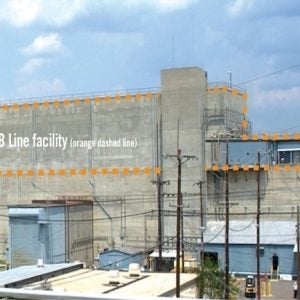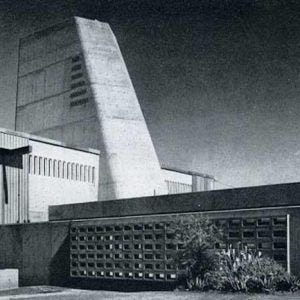The Czech government on 28 July signed agreements with power utility ČEZ for the planned expansion of the Dukovany NPP. Deputy Prime Minister and Minister of Industry and Trade Karel Havlíček and ČEZ CEO Daniel Beneš signed a contract in addition to the umbrella agreement, which defines the zoning permit for the location of the building and the selection of the contractor by 2024. The agreements cover the general structure of the project and its inception phase, including the holding of a tender, which will result in ČEZ receiving a preferred list of suppliers of reactor technology by 2022. The contract with the supplier is expected to be signed in 2024. Construction of the new unit may begin in 2029, for commissioning in 2036.
The Czech government, which owns 70% of the ČEZ shares earlier in July approved plans to provide an interest-free loan for the new unit.
The government also approved a model for buying electricity from the new unit at a specific price, with consumers paying the difference if this price is higher than the wholesale market prices. These plans will still need to be approved by the European Commission to verify that they comply with EU state aid rules.
The Czech state has long been negotiating with ČEZ to expand its nuclear fleet, but costs and funding were the main obstacles. Benes had said earlier that the company would prepare a tender by June 2020, with five bidders expected in 2021. He added that market valuations for the new unit range from $5.9 billion to $6.9 billion, but the final price will be announced at auction.
Among other things, the implementation contract states that the contract with the supplier should be negotiated and ready for signing by 31 December 2022 and no later than 30 June 2024. ČEZ's subsidiary ČEZ Dukovany II (EDU II), which is responsible for the project, however, is expected to try to negotiate and prepare the contract for signature earlier. The budget for the preparation of the construction of the unit and the operation of EDU II for the first phase of the project until the middle of 2024 amounts to CZK3.4 billion ($153m) according to the contract.
A spokesman for ČEZ confirmed that the company had consulted with potential tenderers, and they all confirmed their interest. These include China's CGN, France's EDF, South Korea's KEPCO, Russia's Rosatom and US-based Westinghouse.
Beneš said that it is not in CEZ's interest to exclude some applicants from the competition for the Dukovan construction before the tender. The possible participation of Chinese and Russian companies had been criticised by opposition politicians. "It is in CEZ's interest to have as many candidates as possible in the competition, who will compete against each other, and thus force each other to improve their offers, because we need to get the best possible offer. For this reason, it is not in CEZ's interest to exclude anyone, " he said.
"On the other hand, the agreement between the state and CEZ, which we signed, describes the basic security interests of the state and ways to enforce them, and it says that the state can say during or at the end of the competition that it prefers one of the bidders for security reasons," said Beneš. He added that Havlíček and Prime Minister Andrej Babiš have similar views on the matter and favour keeping as many candidates in the competition as possible for as long as possible.
The Czech Republic operates six commercial nuclear power units – four Soviet-built VVER-440s at the the Dukovany NPP and two Russian VVER-1000 units at the Temelin NPP, which together provided about 35% of total electricity production. The current units at Dukovany, which were commissioned in 1985-1987, will be decommissioned no later than 2045-2047, which means that the original units and the new unit will work together for up to 10 years. The government plans long-term operation of the Dukovany units for up to 60 years. ČEZ recently announced an investment of about €2 billion in a life extension project, which means annual investments in the modernisation and reconstruction of the units will increase from €56 million to €93 million by 2028.In 2014, ČEZ cancelled a tender for the construction of two new units of the Temelin NPP after the company did not receive government guarantees for the project.






